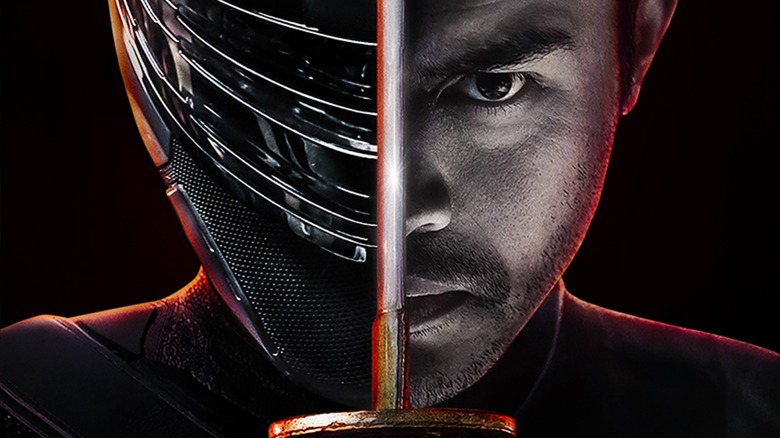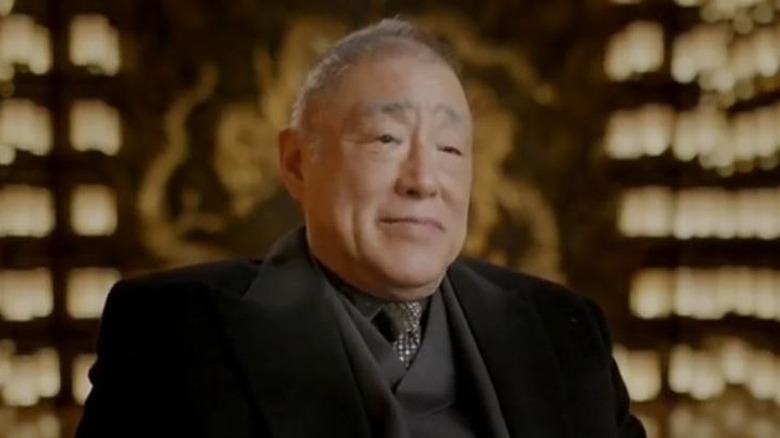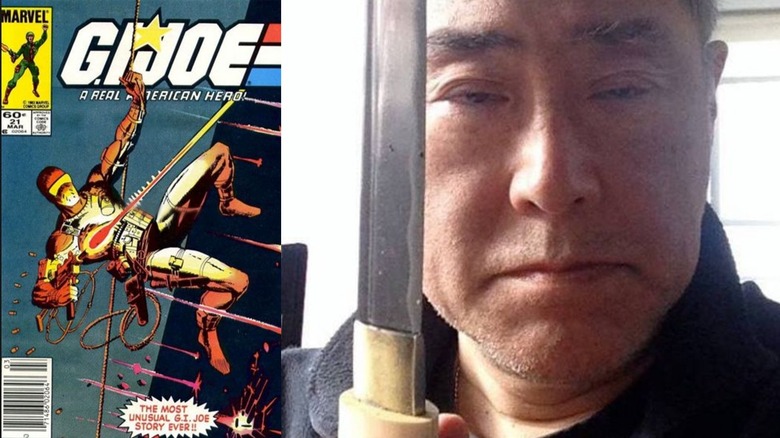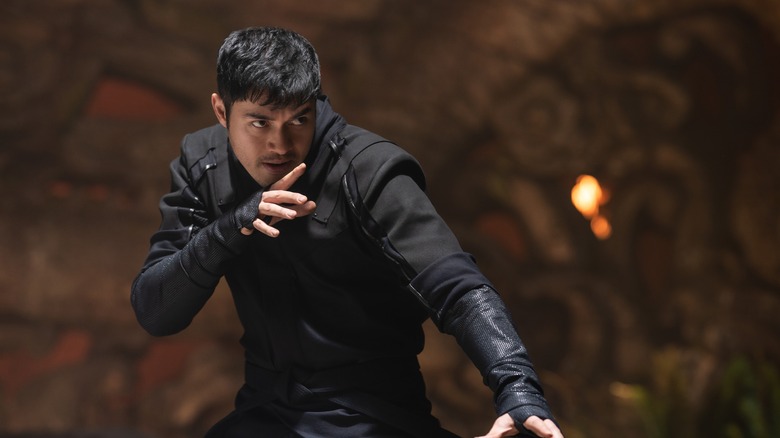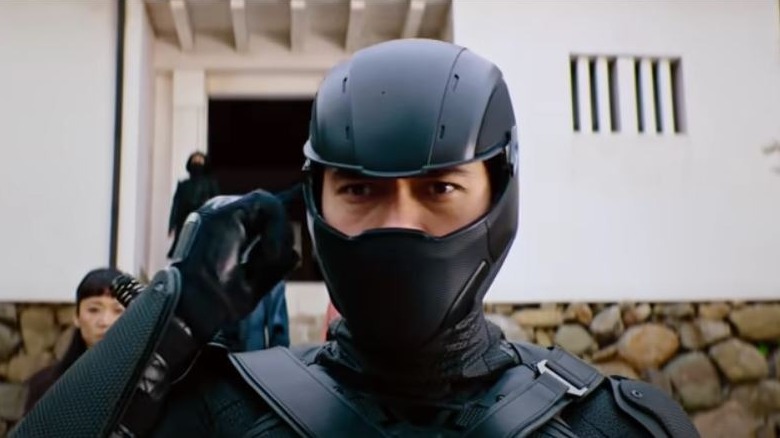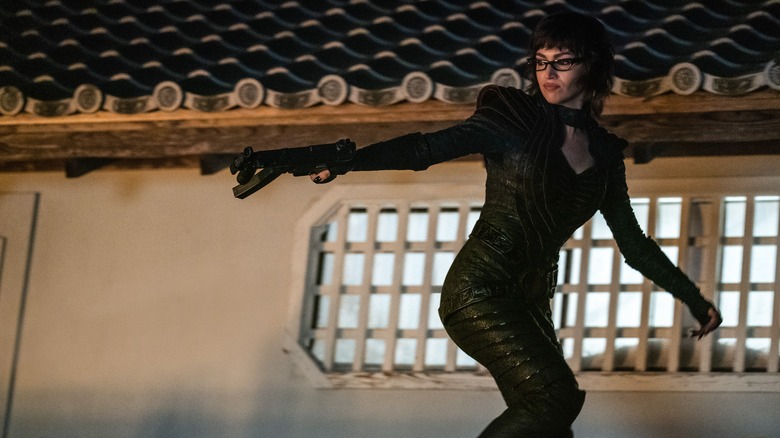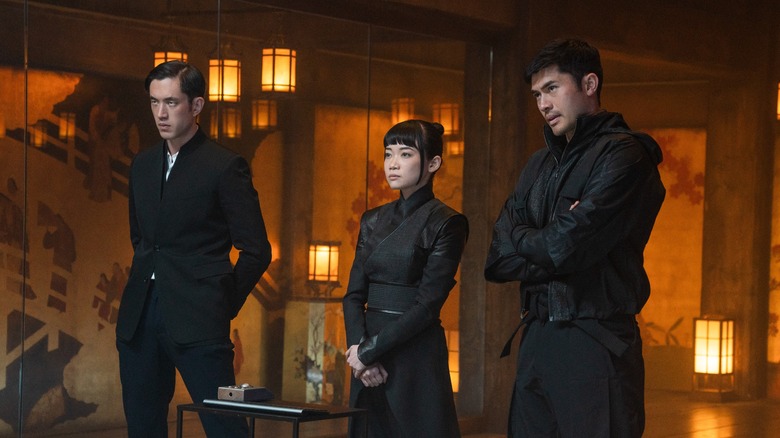G.I. Joe Comic Book Creator Larry Hama Pulls Back The Curtain On Snake Eyes - Exclusive Interview
While the pop culture world changed forever in 1964 when Hasbro Toys released its first set of 12-inch G.I. Joe action figures, the concept reached even greater heights nearly 20 years later thanks to the inventiveness of legendary Marvel comic book writer and editor Larry Hama.
After every writer at Marvel turned down the offer to create a comic book series about a counterterrorist group of soldiers, Hama seized the opportunity — and his "G.I. Joe: A Real American Hero" would become a massive hit not only as publication, but as part of a product line that included new 3 3/4-inch action figures and an animated series. Suddenly G.I. Joe heroes like Snake Eyes, Scarlett, and Duke, and Cobra villains including Destro, the Baroness, and Storm Shadow became household names.
The characters also have also made appearances on the big screen over the years, including 2009's "G.I. Joe: The Rise of Cobra" and "G.I. Joe: Retaliation" in 2013. Now approaching a decade later, producers decided to get back to basics with "Snake Eyes: G.I. Joe Origins," which chronicles the beginnings of the black-costumed clad ninja (Henry Golding), as well as Tommy Arashikage (Andrew Koji) — Snake Eyes' blood brother-turned-nemesis — as he transforms into Storm Shadow.
In an exclusive interview with Looper, Hama, a consultant on "Snake Eyes," gave us his take on Golding's performance as the title character, revealed the story of taking on the "G.I. Joe" comic book assignment in 1982, and more. "Snake Eyes" is now available on digital and premium video on demand ahead of its release on 4K Ultra HD Blu-ray, Blu-ray, DVD, and On Demand on October 19.
Hama wanted to highlight the 'regular Joe' aspect of the characters
One of the most interesting facts to people new to the G.I. Joe experience is that it was actually a Marvel comic book at first — and obviously a lot of people associate Marvel comics with Spider-Man, Iron Man, the Avengers. But I feel like the characters in "G.I. Joe" are every bit as much superheroes fighting, supervillains. Do you look at it that way?
No. [Laughs]
Just regular Joes?
Yeah, because I'm not really a superhero guy. It's a harder fantasy for me to swallow. I mean, the sort of superhero or mutant characters that I've worked with [Wolverine, X-Men] were less super. They had powers, but they were more on the human side. In a way, superheroes are sort of a fascist fantasy. It's like the Ubermensch [idea by Friedrich Nietzsche]. It's like this outside entity that comes in and is much stronger and could beat up all the bad guys.
But to me, the G.I. Joe fantasy was not as much a military fantasy or a superhero fantasy as it was a fantasy about camaraderie and brotherhood and working together. And that's the way I saw it. In fact, I've said this before, but I've always been a Carl Barks "Uncle Scrooge" fan, and still am. So, in my head, basically "G.I. Joe" was "The Junior Woodchucks" with guns.
Hama admits he took the 'G.I. Joe' offer to get in the door as a writer
I'm still shocked every time I read about this opportunity of "G.I. Joe" being presented to you as a comic book after everybody else turned it down. Did you look at it more as an opportunity? Obviously, you're open-minded. I would imagine that because you served in the military — and thank you for your service — that you must have perceived it from the beginning as more than just a job. It seems like it was really an opportunity to tell some exciting stories.
Yeah, but it was also my foot in the door to get writing work. I'd been trying for 10 years to get writing work. No editor at Marvel would give me writing work. It was company policy that if you were an editor, you couldn't write for another company, but I had special dispensation from the editor-in-chief to write for Warren Comics because I was able to go to him and prove to him that I had gone to every editor at Marvel, and nobody would give me any writing work.
So yes, it is an opportunity to tell certain types of stories, but it has never been my intention to do military comics. I wanted to do funny animals from the get-go, but nobody was buying funny animals, so I had to do superheroes. I fell into "G.I. Joe" completely by accident. If they had offered me Barbie, I would have taken Barbie and given it my best shot because I wanted to work. I wanted the writing work.
Hama gave the Snake Eyes production the go-ahead to make changes
There's a wonderful featurette for "Snake Eyes" where Henry Golding appears so thrilled that you gave the blessing to the project. What is it about Henry Golding that makes him the perfect actor to play Snake Eyes?
Well, he's sort of like the real thing. He has this sort of natural likability, and his acting skills are really all there. If you've seen him in anything else, you realize, "Oh wow, he's acting." He's not like any number of stars who are only themselves, ever. And he grounds it. And the fact that the setup is so that this is before he loses his ability to speak, and we get to hear him and find out what he is internally instead of imagining it in the comic form.
The origin story for "Snake Eyes" is obviously the biggest departure from your original comic book vision, starting with the time period. With the movie, we're talking about modern day versus the Vietnam War in the comic books where Snake Eyes and Tommy served together. What part of the pitch about changing the timeline made you feel like, "Okay, this is an interesting story and an interesting entry point to bring Snake Eyes' tale to the big screen"?
It's always difficult to try to keep these things current. It was something that's been going for 30-something years. If it's a realistic timeline, all these characters would be in their 70s. But it's that same dilemma that you have with any of the characters in any of the universities. I mean, Spider-Man is 70, but in the comics he's still in college or something, or just out of college. Superman's got to be over 100.
Hama embraces both the film and comic book versions of G.I. Joe
I think that fans have a hard time with change, but since you're supporting the project, is it your belief that comic book storylines and movie storylines co-exist?
They can co-exist, but they're two different mediums. There are things that work in comics that just don't work onscreen, because comics are ... It's a medium where you learn everything by increments. You read Batman for 20 years, you know an awful lot about Batman, but you've learned it in little bits and pieces every month. In a movie, you've got 90 minutes to two hours to get it all up there.
So the methodology of getting the information across is very different. In comics, you have to show it visually and make it work as a flow of pictures. In movies, you've got sound effects, you've got the ability to do all this stuff. And a lot of comic book tricks and storytelling methods were copied from movies. And so it's this weird back-and-forth. Both mediums feed on each other. Sure.
Can you see Snake Eyes getting to the point where he becomes that mysterious hero under the mask that fans do know in the comic books? Because of course, this would involve some sort of incident — and God forbid, I mean, because my wife says it, too — Henry Golding, he's a handsome fella. He got hired because he looks good without the mask. Right?
Right. [Laughs]
But if you want to follow that comic book line, you're going to look at disfiguring his face plus losing his ability to speak. I'd hate to see it happen to this iteration of the character, but do you think it's necessary, and would you like to see it go in that direction?
Well, I think there's a way to do that. I mean, look at "The Mandalorian." The main character never takes off his helmet except for the last episode or something. With the "Snake Eyes" format, you could always have flashbacks. There are ways to get around all of this stuff. It's a very flexible medium.
Make way for the Baroness
I really look at "Snake Eyes" as Snake Eyes and Storm Shadow's origin story, even though Snake Eyes is the only character mentioned in the title. But if there's any other character you would like to see get an origin story from the G.I. Joe comic book point of view, who would that be?
Probably the Baroness. She's very intriguing character, I think. Well, I noticed that when I go to the conventions, the Baroness cosplayers players outnumber all the other G.I. Joe cosplayers two to one or three to one. So there's obviously some potential there.
I love Úrsula Corberó's take on the Baroness because the look is slightly different. The hair, the costume is reminiscent of the Baroness we all know and love, but she definitely possesses that attitude and that sass — that killer sass. I'm sure you were thrilled with Ursula's interpretation of the character.
She's very good.
Hama is thrilled over the strides made with Asian representation in showbiz
This has really been a great year for Asian representation in Hollywood, from "Snake Eyes" over the summer and now to "Shang-Chi and the Legend of the Ten Rings." How thrilling is that for you as an artist of Asian heritage?
Very thrilling. I mean, it's something I thought would never happen. It's like Obama getting elected president. I never thought I'd see that in my lifetime. And I never thought I'd see this sort of Asian representation in media. I mean, when I was a kid, I mean, I remember my grandmother would come out of the living room, yelling, "There's an Asian person on TV!" We'd all have to go, "Holy smoke," because it was unheard of.
I think it's good and that we're getting away from those these godawful stereotypes. I've been in the Screen Actors Guild since 1976. And for years, the only parts I ever got offered were bad guys. Or I auditioned for commercials, it'd be like a Japanese car company executive, a medical examiner, a doctor, some sort of guy in a lab coat or a waiter. Those are the only parts around. And now it's wide open.
And what's great about that is that you forged your own destiny by creating the "G.I. Joe" comics — and hopefully what's going to happen here as a result is that it's going to inspire more writers of Asian descent to do the same.
Yeah. It's amazing, and I love it.
Of course, your career has also included having a hand in "Wolverine" and "Logan" and editing such DC properties as "Wonder Woman." Do you feel a certain amount of pride when those characters finally make it to the big screen, knowing that you have a hand in their creation and telling their stories?
Oh, yeah. Yeah, but it's also always hard to believe that it's up there. It's always a surprise.
Also starring Samara Weaving as Scarlett and Haruka Abe as Tommy's confidant, Akiko, "Snake Eyes" is available on digital HD and premium video on demand, and debuts on 4K Ultra HD Blu-ray, Blu-ray, DVD, and On Demand on October 19.
